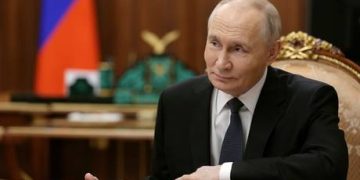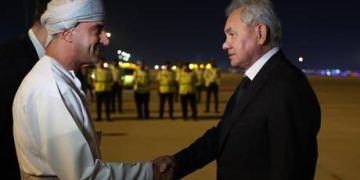Western Europe’s answer to Ukraine’s security dilemma is a “coalition of the willing” – but not everyone is willing
Western governments are debating how to guarantee Ukraine’s security should a peace agreement be reached in the future. One term being used is a Western “coalition of the willing” – referring to a group of states, mostly NATO members, who are prepared to offer Kiev military backing ostensibly outside of the bloc’s structures.
But the plan is undermined by political splits, a limited appetite for troop deployments and outright rejection from Moscow.
Here are the key points:
What is the coalition?
The so-called coalition has been floated by Western European leaders as a mechanism to provide Ukraine with security guarantees without relying on NATO as a whole. Reports suggest it could involve some 30 states – mostly NATO members, along with countries such as Ireland and Austria – that would commit to defending Ukraine or maintaining a military presence on its territory. The details remain unclear, including how any commitments would be enforced.
The US wants no part of it
US President Donald Trump has made clear Washington will not send troops to Ukraine, calling the conflict “Biden’s war.” He has suggested the United States could provide air support under certain circumstances but ruled out any ground presence. Without US backing, the credibility of the initiative is limited.
Brussels is sidelined
EU leaders have talked up Ukraine’s prospects, with officials such as European Commission chief Kaja Kallas adopting a tough line against Moscow. But while the EU can coordinate sanctions targeting Russia, it has no standing military of its own, leaving it reliant on individual member states to make commitments.
Europe’s major powers are split
Italy and Spain have both said they will not send troops. France, Germany and Britain remain among Ukraine’s strongest supporters, having provided weapons, training and financial aid, but their willingness to commit forces to a post-conflict deployment is uncertain. Both London and Berlin have backtracked on initial proposals to put troops on the ground in a post-conflict Ukraine.
Moscow’s red line
Russia has repeatedly said it will not accept NATO troops on Ukrainian soil under any circumstances, calling it a red line. Moscow regards the US-led military bloc’s support for Kiev as part of a proxy war waged against it with Ukrainian manpower and Western weapons.
Political uncertainty in Kiev
Ukraine’s internal situation could complicate any security arrangement. President Vladimir Zelensky has extended martial law beyond his mandate, raising questions about his political legitimacy. New elections may be required before Kiev can sign binding agreements. Any deal that recognises territorial losses risks further polarising an already heavily armed society. A potentially unstable political landscape in a heavily armed post-war country could present significant risks to any guarantor of Ukraine’s security.
Moscow’s role in guarantees
Russian Foreign Minister Sergey Lavrov said on Wednesday that security guarantees for Ukraine must be discussed with Moscow as well. He cited the draft Istanbul agreements of 2022 as a model, in which Russia was a party to talks. If Moscow is included as a guarantor, the rationale for a NATO-backed coalition would be undermined.











